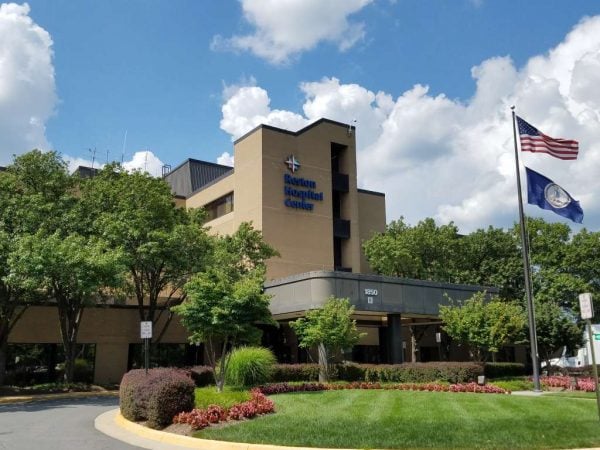 This is an opinion column by Del. Ken Plum, who represents Reston in Virginia’s House of Delegates. It does not reflect the opinion of Reston Now.
This is an opinion column by Del. Ken Plum, who represents Reston in Virginia’s House of Delegates. It does not reflect the opinion of Reston Now.
The message of Dr. Nadine Burke Harris to the 900 Virginia health, education, and human services professionals and advocates at the Voices for Virginia’s Children Summit on Childhood Trauma and Resilience last week was clear: Virginia, as well as other states, needs to move forward promptly on an evidence-based early human services program to screen for adverse childhood experiences and coordinate resources to respond to the needs. It was not a hard sell to the audience. They had already given her a lengthy standing ovation before she started her speech. Most knew of her pioneering work from her book, The Deepest Well: Healing the Long-Term Effects of Childhood Adversity, or her Ted Talk, “How Childhood Trauma Affects Health Across a Lifetime,” that has reached over 2.8 million viewers on www.ted.com/talks. She is known for linking adverse childhood experiences and toxic stress with harmful effects to health later on in life. She founded the Center for Youth Wellness and is California’s first Surgeon General.
According to Dr. Harris, exposure to adverse childhood experiences (ACE) including abuse, neglect, domestic violence and parental mental illness and substance abuse affect 34.8 million children across socio-economic lines and affect not only brain development but can change children’s hormonal systems, immune systems and even their DNA. The results are behavioral problems, learning difficulties and physical health issues. In adults, exposure to ACEs dramatically increases the likelihood of 7 out of 10 leading adult causes of death including heart disease and cancer.
For Dr. Harris early detection is key. Screening for ACEs in children is possible and with appropriate support services the existing and future harm to children’s brains and bodies caused by toxic stress can be alleviated. As Dr. Harris told the group in Richmond, “routine screening for ACEs at pediatric well-child visits should be as common as checking for hearing loss or exposure to lead paint. With early detection children can be treated and saved from a lifetime of health issues.”
Virginia currently has 19 communities throughout the state that have programs referred to as “trauma-informed community networks” that are at various stages of development of programs and services utilizing the findings of research on trauma and its impact on public health. There is little doubt that Dr. Harris’s visit will increase interest among practitioners and policy makers as to a more widespread use of the results of studies on ACEs. An effective program of ACE detection and intervention could lead to reduced health care costs, better performance of students in school, and a better quality of life for those involved. In the long-term, costs would be low or minimal as better diagnoses of conditions should lead to more effective treatments and a reduction in costs.
I look forward to working with Voices for Virginia’s Children–celebrating its 25th anniversary at the Summit–and its advocates to determine the most effective ways to make all programs trauma informed that will serve the entire Commonwealth. Such an approach will reduce the lingering harm that can come from undetected adverse childhood experiences.
File photo
The Virginia Department of Health has designated Reston Hospital Center (1850 Town Center Parkway) as a Level II Trauma Center, a move that makes the 187-bed facility one of 19 trauma centers in the state.
The center is the first to receive the designation in Northern Virginia in over a decade, allowing emergency responders to transfer patients for immediate trauma care when treatment is most effective.
In a release by RHC, Dr. Ranjit Pallurkat, medical director of the center’s trauma services, said the designation is a critical step to enhance the level of care the center provides.
“Expanding our services into a trauma program enables us to deliver a higher level of care to injured patients, close to their homes and families,” Pallurkat said.
In a release, John Deardorff, President and CEO of RHC said the designation is a “natural progression” for the center.
“With the rapid growth in Northern Virginia, it’s our job to ensure that Reston can provide the higher levels of necessary care in a more accessible manner for our EMS partners and our patients. Every minute counts, and our ability to provide this level of care – without transfer and close to home – would not be possible without the partnership between our skilled medical staff and hospital employees.”
According to the Virginia Department of Health, a hospital’s designation is determined by several criteria. Level II centers have an organized trauma response and must provide definitive care regardless of the severity of the injury. On call staff are expected to promptly treat the patient. In some cases, centers must transfer complex cases to Level 1 centers. Treatment facilities with a Level I designation must provide the most comprehensive care.
The center’s surgical trauma team specializes in the following surgeries: trauma, vascular, thoracic, neurological, orthopedic, hand, plastic, maxillofacial, oral and more. The center is part of the HCA Virginia Health System, which operates 14 hospitals and more than 30 outpatient centers in the state.
Other Level II Trauma Centers in Virginia include Centra Lynchburg General Hospital, Chippenham Medical Center and Winchester Medical Center.


